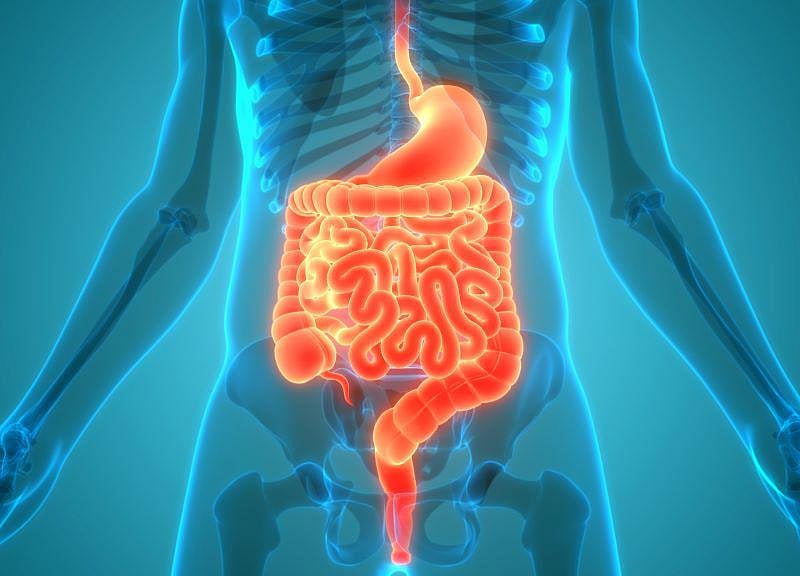Get Healthy!

- Dennis Thompson
- Posted April 28, 2023
Gut Microbiome Changes Throughout the Day and With the Seasons
Half of the cells in your body aren't human -- and a new study suggests that many critical to your health oscillate by the hour, day and even the season.
The human body contains about 40 trillion bacteria, viruses and fungi, creating a microbiome that roughly matches the number of human cells one-to-one, said researcher Dr. Amir Zarrinpar, an assistant professor of gastroenterology at the University of California, San Diego.
His team has discovered that the microbes of the gut microbiome are constantly changing throughout the day, and even change with the seasons, Zarrinpar said.
"These findings offer important insights into the role of the changing gut microbiome in health and disease,"Zarrinpar said during a media briefing on the findings. "They can potentially explain why we are predisposed to seasonal diseases and whether the microbiome primes us for that. And not only that, they can influence how researchers study the microbiome and how our research could be affected by these variations in the microbiome."
Zarrinpar is scheduled to present the findings May 7 at the Digestive Disease Week meeting in Chicago. Findings presented at medical meetings should be considered preliminary until published in a peer-reviewed journal.
For the study, Zarrinpar and his colleagues reviewed data on about 20,000 stool samples collected as part of a global microbiome research effort called the American Gut Project.
The researchers looked at the specific time, date and location of each sample, and used that data to determine how much the makeup of the gut microbiome can vary.
The investigators found that nearly 60% of related bacterial groups fluctuate with a distinct 24-hour cycle.
"We do not have a clear cause of what contributes to these daily fluctuations, but we hypothesize that diet and sleep are likely the main contributors to this,"Zarrinpar said. "This is likely because the gut environment is radically different in terms of nutrient and water availability and pH when a person is sleeping compared to right after they eat breakfast."
Seasonal fluctuations were even more pronounced, with certain types of bacteria following one of two distinct patterns over the course of a year, the researchers said.
For example, one family of bacteria called proteobacteria consistently dipped to low levels during the winter, then steadily rose until peaking in the summer, Zarrinpar said.
"What really caught us by surprise was the seasonal variation. We did not expect the seasons to have such a tremendous effect,"he noted.
"Though that's been recorded in hunter/gatherer societies in Africa, it has not really been reported in industrialized countries,"Zarrinpar continued. "To find an effect that was much more pronounced than the daily variation really caught us by surprise."
Seasonal fluctuations might be influenced by location, climate, pollen, humidity and other environmental factors, he suggested. These findings could offer a potential explanation why humans are more susceptible to colds and flu during specific seasons, since the microbiome is known to influence immune response.
The fluctuating microbiome also plays a role in how drugs are metabolized, and therefore could alter the results of clinical trials unless it's taken into account, Zarrinpar pointed out.
"As physicians and as scientists, we always wonder why certain patients respond to some medications more robustly than others. I think that in terms of performing clinical trials, it's important to remember that, especially if there's a wide-ranging, multiyear study, that perhaps there may be seasonal variations in response to a drug,"he said.
"An interesting thing that we've thought about is that patient responses to COVID vaccine differs based on what time of day they received the vaccine,"Zarrinpar added. "Certainly since the microbiome is a tremendous influencer of immune response, we do wonder whether these variations have a role in something like vaccine response."
This might explain why studies into the potential benefits of probiotics and prebiotics have wound up with variable results, Zarrinpar said.
"Because the landscape in which these agents are being introduced is fluctuating and there may be times of year or times of day where the microbiome may be more receptive to manipulation or where functions for drug metabolism are more available, this could have a lot of implications,"Zarrinpar said.
Dr. Loren Laine, chair of this year's Digestive Disease Week, called the microbiome study "important and interesting."
"The idea that it's kind of a stable population that just kind of stays the same is not really true,"said Laine, who is section chief of digestive diseases at the Yale School of Medicine in New Haven, Conn. "It dramatically changes with diet, with medication use, and obviously different times of the day."
Further research is needed to identify important parts of the microbiome and how they fluctuate, Zarrinpar and Laine said.
"The clinical implications will still await to be seen right now,"Laine said.
More information
The Cleveland Clinic has more about the gut microbiome and your health.
SOURCES: Amir Zarrinpar, MD, PhD, assistant professor, gastroenterology, University of California, San Diego; Loren Laine, MD, section chief, digestive diseases, Yale School of Medicine, New Haven, Conn.; May 7, 2023 presentation, Digestive Disease Week meeting, Chicago







